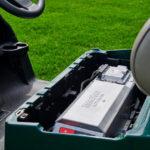
An In-depth Look at the Pros and Cons of Gas and Electric Golf Carts
Introduction:
Golf carts are an essential part of the golfing experience. They provide an efficient and convenient way to transport players and their clubs around the course. With the rise in popularity of electric golf carts, many golf courses are now offering these carts as an alternative to gas golf carts. But is one better than the other? In this article, we’ll take a closer look at the pros and cons of gas and electric golf carts.
Gas Golf Carts: Pros
Powerful Engine: Gas-powered golf carts have powerful engines that can tackle steep hills, making them ideal for courses with rugged terrain.
Lower Maintenance Costs: Gas golf carts are generally cheaper to maintain than electric carts due to their simple mechanical structure.
Quick Refueling: Refueling gas golf carts is fast and easy, as opposed to electric carts that take hours to charge.
More Affordable: Gas golf carts come at a lower initial cost than electric carts making them easier on the budget.
Less Downtime: Gas golf carts have a longer runtime than electric carts, which reduces downtime on the golf course.
Gas Golf Carts: Cons
Environmental Impact – Gas golf carts are known for their emissions and air pollution which contributes to environmental degradation.
Gasoline Spills – There’s always the chances of a spill while you are refilling the gas golf cart, and the fuel can stain clothing of the golfer and other items that may come in contact with the spilled gasoline.
Noise Pollution – Gas golf carts can produce loud noises, which can disrupt the peace on the golf course.
Limited Use – Gas golf carts can be used only where gasoline is permitted; hence they are not ideal in some areas.
Higher Operating Cost – Gas golf carts require constant fueling, which can add up to the operating costs over time.
Electric Golf Carts: Pros
Eco-friendly – Electric golf cart produces zero emissions, making them an environmentally friendly option.
Noise Reduction – Electric golf carts generate less noise, resulting in a calmer and friendlier environment on the golf course.
Cost-effective – Electric carts run on rechargeable batteries, making them more cost-effective to operate over time.
More Comfortable – Electric golf carts come with many features such as climate control, comfortable seats and dashboards that make riding more comfortable.
Safety – Electric golf carts tend to have fewer accident rates as compared to gasoline-powered carts for obvious reasons
Electric Golf Carts: Cons
Shorter runtime – Electric golf carts have a shorter runtime than their gas-powered counterparts, which means they need decelerated recharge times.
Lack of temperature control – Electric golf carts are dependent on batteries, which means that they lack temperature control when operating in extreme temperatures.
Limited Use – Electric golf carts are not permitted in areas that lack charging stations.
Complex Maintenance – Electric golf carts have complex mechanical structures, which means they are more expensive to maintain than gas-powered golf carts.
Higher Initial Cost – Electric golf carts come at a higher initial cost, making them less affordable than gas golf carts.
Both gas and electric golf carts have their pros and cons, and the decision to choose one over the other is dependent on personal preference, budget, and the intended use of the cart. For those who prioritize power and longer runtime, gas golf carts are the best choice, while electric golf carts are preferred by those seeking a more eco-friendly and quieter option. Ultimately, the decision you make boils down to the features that matter most to you.





